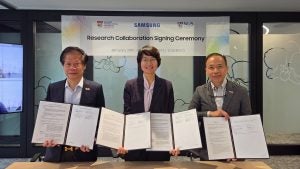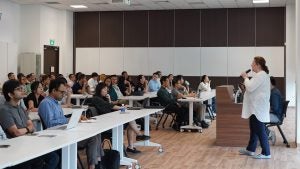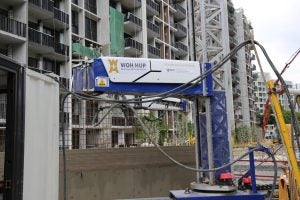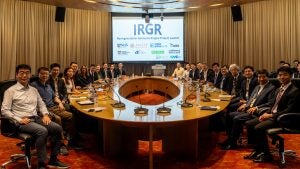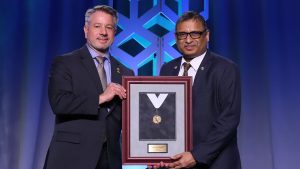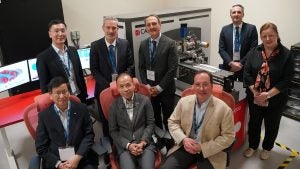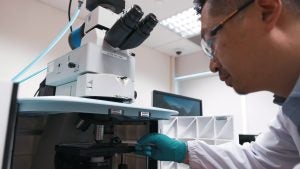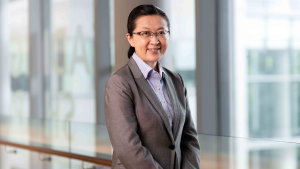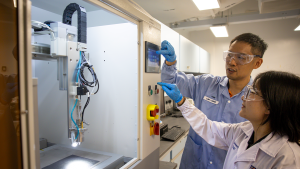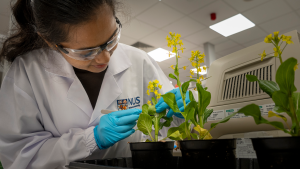RESEARCH NEWS
SHINE centre signs collaboration agreements with Samsung
Collaboration agreements support industry-facing research in high-performance computing and semiconductor manufacturing.
Strengthening grant proposals through strategy, clarity and teamwork
A grantsmanship workshop held at CDE explores how strong research ideas become competitive proposals able to secure large-scale grants.
CDE advances sustainable 3D concrete printing for the construction industry
In collaboration with industry partner Woh Hup and supported by the Building and Construction Authority and the National Additive Manufacturing Innovation Cluster, researchers from College of Design and Engineering’s Civil and Environmental Engineering Department are pushing the frontiers of 3D concrete printing by incorporating the technology into on-site construction, reducing labour and materials while meeting structural demands in dense urban settings.
NUS launches project to advance near-zero emissions ammonia marine engines
Industry–academia collaboration to be based at CDE targets decarbonisation of the global shipping industry through new ammonia-fuelled engine concept.
Prof Chandra Sekhar receives ASHRAE F. Paul Anderson Award
Award recognises “globally respected leader” who has made “lasting contributions through his technical expertise, research leadership, and dedicated service.”
First atom probe tomography facility in SE Asia opens at NUS
Invizo 6000 Atom Probe Tomography Facility supports research in semiconductors, advanced alloys, energy materials and nanotechnology.
AI powers collaboration in climate predictions
NUS CDE researchers helped develop an AI method that keeps long-term climate simulations stable and accurate.
Durability breakthrough for tandem solar cells
Use of vapour deposition on industrial silicon wafers supports higher-efficiency solar energy generation and accelerates path to real-world deployment.
Prof Liu Bin named fellow of the National Academy of Inventors
NAI Felllowship recognises inventors whose work has led to real-world impact through patented technologies.
Three CDE faculty named IEEE Fellows for 2026
Prof Aaron Thean, Prof Yeo Yee Chia and Assoc Prof Liang Yung Chii recognised for outstanding contributions to electrical and computer engineering.
Asst Prof Lum Yanwei honoured with 2025 WIN Rising Star Award
Chemical and Biomolecular Engineering researcher recognised for his innovative nanotechnology research on turning waste CO2 emissions into valuable products.
Microneedles boost plant growth with less fertiliser waste
Dissolving patch delivers beneficial microbes directly into leaves and stems, speeding growth in vegetables while using over 15 per cent less biofertiliser.



